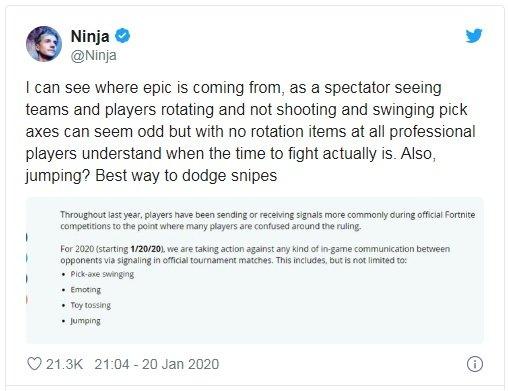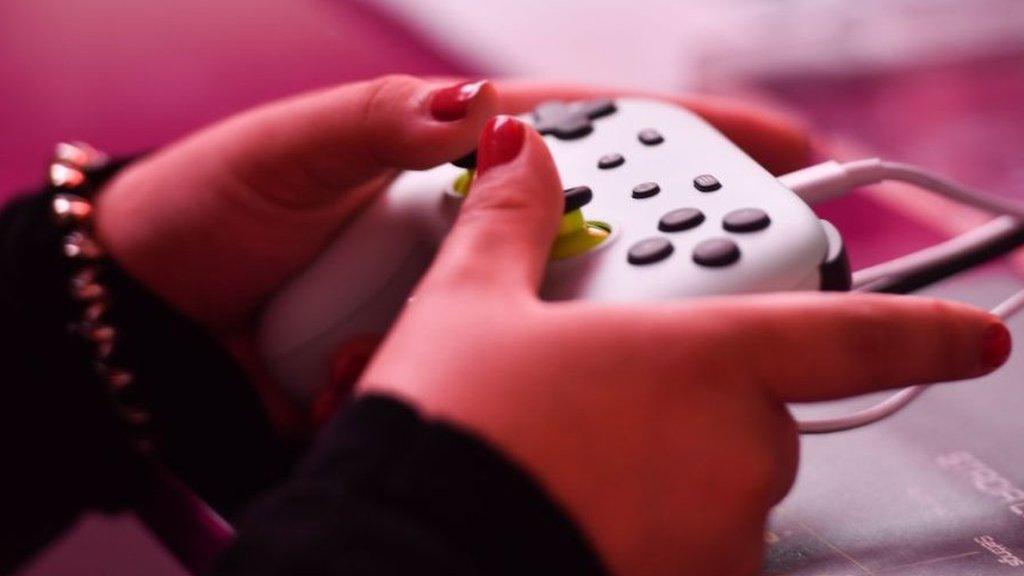Fortnite teaming ban: Ninja comments on new rules
- Published
- comments

Epic Games has announced some big changes for Fortnite competitive play, competitions and tournaments.
The changes involve "collusion" - where players team up with opponents to help each other.
Teaming has been classed as cheating for a while - it was a big problem in the run-up to last year's World Cup - but now it's officially part of Fortnite rules in black and white.
But it's not aimed at stopping you playing with your friends, it's only in official competitions.
In a post titled 'Signalling Update—Competitive Fortnite 2020 developer Epic said: "Throughout last year, players have been sending or receiving signals more commonly during official Fortnite competitions to the point where many players are confused around the ruling."
For 2020, Epic say they are taking action against any kind of in-game communication between opponents via signalling in official tournament matches, including:
Pick-axe swinging
Emoting
Toy tossing
Jumping
Any cases of signalling like those listed above will now result in a "teaming/collusion penalty".
So now, if you team up during competitive play, including fighting together, planning to land together, swapping items, or communicating in any way - you could get banned.

What are players saying?
Not everyone is convinced by the change of rules.
Fortnite streamer 'Ninja' says:
"I can see where Epic is coming from, as a spectator seeing teams and players rotating and not shooting and swinging pick axes can seem odd but with no rotation items at all professional players understand when the time to fight actually is. Also, jumping? Best way to dodge snipes."

Other players have said they can't wait to get a ban by accidently selecting the pickaxe.
Epic has moved to reassure players, saying signalling rules only come into force if you're actually trying to communicate with other players.
"Competing players shouldn't have anything to worry about if the jumping isn't an intended meaning of signalling."
- Published16 May 2024

- Published20 November 2019

